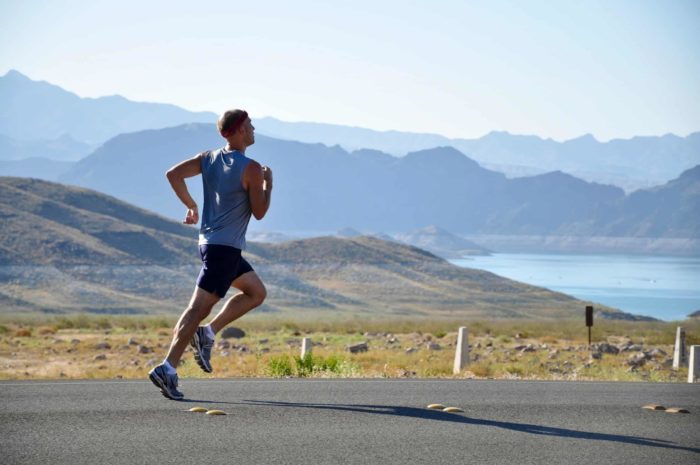Summer is the perfect time for travel adventures, whether you’re exploring exotic destinations, road-tripping across the country, or relaxing at a beach resort. However, travel can also expose you to various health risks, not to mention the random bugs that may appear after spending time on a plane or wearing your body down from travel.
To ensure you stay healthy and safe on your summer adventures, and don’t miss any fun summer plans due to illness, we’ve compiled our most essential tips that will tangibly help the family stay healthy this summer, so you can make the most of your holiday! Read up to learn how to prepare, prevent illness, and stay healthy while traveling this summer.
Pre-Travel Preparations: The Key to a Safe Trip
Visit Your Primary Care Provider
Before embarking on your summer travels, some should consider scheduling a visit to your primary care provider. A pre-travel consultation can help you:
- Assess Your Health: Ensure you’re in good health and fit to travel. Discuss any chronic conditions, medications, or concerns you might have.
- Update Vaccinations: Depending on your destination, you may need vaccinations for diseases such as hepatitis A, typhoid, yellow fever, or malaria. Your provider can guide you on necessary immunizations.
- Get Prescription Medications: Ensure you have enough medication for the duration of your trip, including any prescriptions for travel-related conditions like altitude sickness or travelers’ diarrhea.
Pack a Travel Health Kit
A well-stocked travel health kit is essential! Our favorite things to include are:
Medications: Your regular prescriptions, plus over-the-counter remedies for common travel ailments like pain, allergies, and digestive issues.
- First-Aid Supplies: Bandages, antiseptic wipes, gauze, and adhesive tape for minor injuries.
- Health Essentials: Sunscreen (SPF 30 or higher), insect repellent, hand sanitizer, and a digital thermometer.
- Travel-Specific Items: Oral rehydration salts, motion sickness medication, and water purification tablets if traveling to areas with unsafe drinking water.
Research Your Destination
Understanding potential health risks associated with your destination is also crucial, especially if it’s an international trip. Research the following items:
- Local Health Concerns: Be aware of prevalent diseases or health issues in the area.
- Food and Water Safety: Learn about the safety of local food and water to avoid gastrointestinal issues.
- Weather Conditions: Prepare for the local climate by packing appropriate clothing and gear.
On-the-Go Tips: Staying Healthy While Traveling
Stay Hydrated
Dehydration can lead to fatigue, headaches, and more severe health issues. To stay hydrated:
- Drink Plenty of Water: Aim for at least eight 8-ounce glasses a day, more if you’re in a hot climate or physically active.
- Avoid Excessive Alcohol and Caffeine: These can contribute to dehydration.
- Carry a Reusable Water Bottle: Refill it regularly to ensure you always have water on hand. This comes especially in handy in airports and on longer flights.
Practice Good Hygiene
Good hygiene is your best defense against many travel-related illnesses. Remember to:
- Wash Your Hands Frequently: Use soap and water, or hand sanitizer if soap isn’t available.
- Avoid Touching Your Face: This reduces the risk of transferring germs from your hands to your mouth, nose, or eyes.
- Be Cautious with Food and Water: Eat well-cooked foods, peel fruits and vegetables, and drink bottled or purified water.
Protect Yourself from the Sun
Sunburn and heat-related illnesses are common during summer travel. Protect yourself by:
- Applying Sunscreen: Use a broad-spectrum sunscreen with SPF 30 or higher. Reapply every two hours, or more often if swimming or sweating.
- Wearing Protective Clothing: Long sleeves, hats, and sunglasses can shield your skin and eyes from the sun.
- Seeking Shade: Avoid direct sun exposure during peak hours (10 AM to 4 PM).
Prevent Bug Bites
Insect bites can transmit diseases like malaria, dengue, and Zika. Protect yourself by:
- Using Insect Repellent: Apply a repellent containing DEET, picaridin, or oil of lemon eucalyptus.
- Wearing Appropriate Clothing: Long sleeves, pants, and socks can reduce skin exposure.
- Sleeping Under a Mosquito Net: If staying in areas where mosquito-borne diseases are prevalent.
Stay Active and Rested
Travel can disrupt your usual routine, but maintaining a balance of activity and rest is vital. Nothing is worse than feeling too worn down after a travel day to really enjoy your vacation’s activities. To stay in top shape:
- Stay Active: Incorporate physical activities like walking, swimming, or yoga into your daily routine.
- Get Enough Sleep: Aim for 7-9 hours of sleep per night. Consider using earplugs and an eye mask if you’re in a noisy or bright environment.
Family-Friendly Travel Health Hacks
Create a Travel Health Checklist for Kids
Traveling with children requires extra planning. A kid-specific health checklist can be a huge lifesaver! Think through things like:
- Pack Kid-Friendly Medications: Include liquid forms or chewable tablets of common medications like pain relievers, antihistamines, and anti-nausea drugs.
- Include Comfort Items: Bring along favorite blankets, stuffed animals, or toys to help reduce anxiety and stress.
- Prepare for Motion Sickness: Pack motion sickness bands or medications suitable for children.
Snack Smart on the Go
Healthy snacking can keep energy levels stable and prevent crankiness, making travel a breeze compared to otherwise. Some tips include:
- Pack Nutrient-Rich Snacks: Nuts, dried fruits, whole-grain crackers, and pre-cut veggies are excellent choices.
- Avoid Sugary Treats: These can lead to energy crashes and contribute to dehydration.
- Stay Hydrated with Fun Drinks: Infuse water with fruits like berries or citrus slices to make it more appealing to kids.
Use Technology for Health Tracking
Leverage technology to stay on top of your health during family trips:
- Health Apps: Use apps to track hydration, medication schedules, and physical activity. Having them do the thinking for you can be immensely helpful and contribute to your vacation relaxation!
- Wearable Devices: Fitness trackers can monitor steps, sleep patterns, and even heart rates.
- Emergency Contacts: Ensure you have easy access to local emergency numbers and your primary care provider’s contact information.
Practice Mindfulness and Stress Reduction
Travel can be stressful, especially with a family. Incorporate mindfulness techniques to keep everyone calm and happy:
- Breathing Exercises: Teach children simple breathing exercises to use during travel or in stressful situations.
- Mindful Moments: Take time to enjoy your surroundings, whether it’s a beautiful beach or a scenic mountain view.
- Family Yoga: Practice yoga together to stay active and relaxed.
Plan for Down Time
Ensuring adequate rest and relaxation is crucial for maintaining health during travel:
- Schedule Rest Days: Include days with minimal activities to recharge.
- Create a Calm Environment: Use white noise machines or calming music to help everyone sleep better.
- Encourage Quiet Time: Have periods of quiet activities, like reading or drawing, to unwind.
Post-Travel Health: Monitoring and Managing Your Well-Being
Monitor Your Health
After returning from your trip, be vigilant about your health. Watch for symptoms of illnesses you may have been exposed to during your travels, such as fever, gastrointestinal issues, or respiratory symptoms. If you experience any unusual symptoms, seek medical advice promptly.
Continue Good Habits
Maintain the healthy habits you practiced during your travels, such as regular handwashing, staying hydrated, and eating a balanced diet. These practices can help you recover from travel-related fatigue and prevent illness.
Follow Up with Your Primary Care Provider
If you visited areas with significant health risks or if you experienced health issues during your trip, schedule a follow-up appointment with your primary care provider. They can assess your health, address any lingering concerns, and provide guidance for future travels.
Traveling during the summer offers exciting opportunities to explore new places and create lasting memories. By taking proactive steps to prepare, protect yourself while on the go, and monitor your health post-travel, you can enjoy a safe and healthy vacation. Remember, your primary care provider is an excellent resource for personalized advice and recommendations tailored to your health needs and travel plans. Stay informed, stay healthy, and make the most of your summer adventures!




